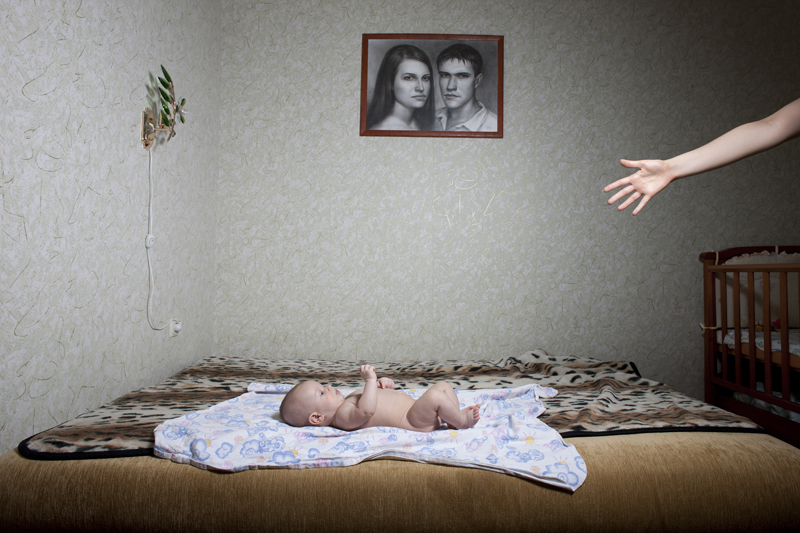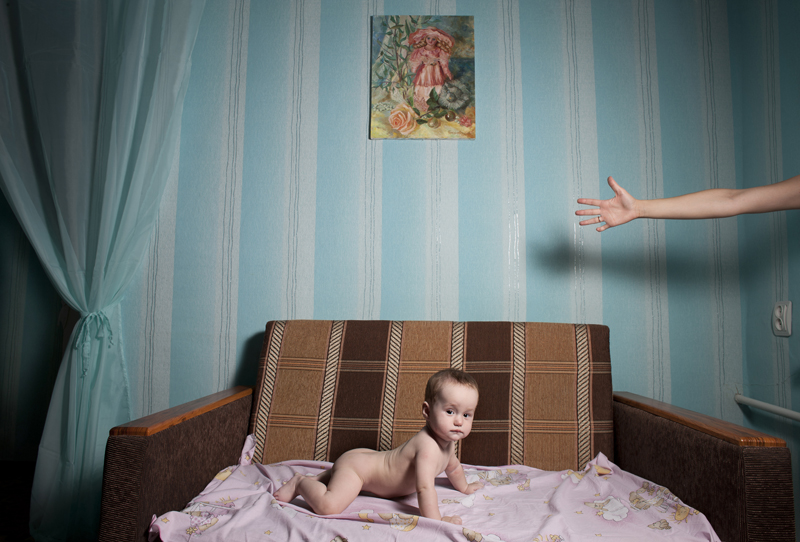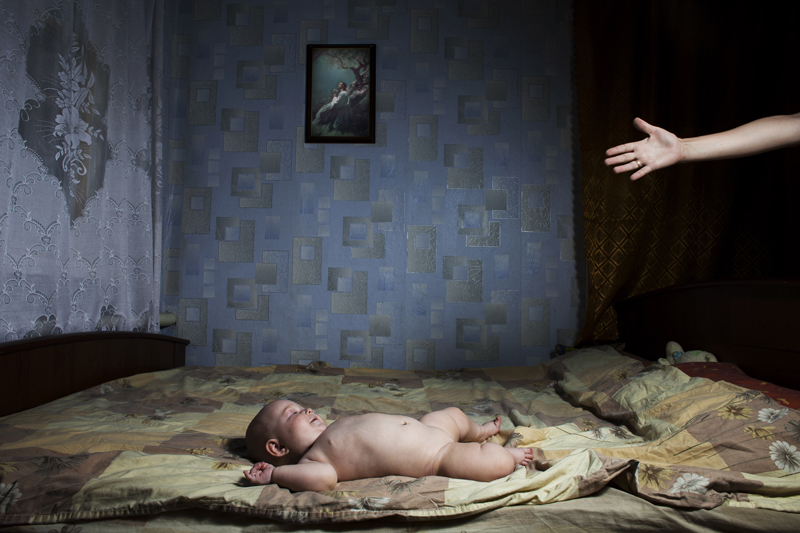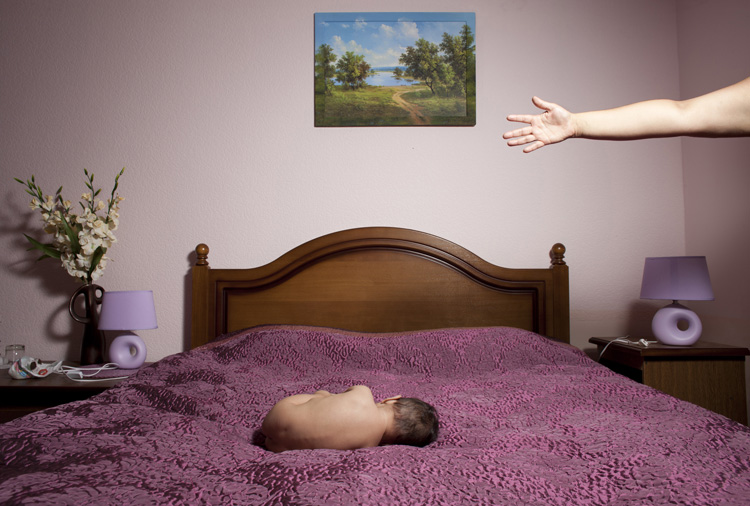
Image_1472, Mother & child #1, UKR © Richard Ansett/Izolyatsia Foundation for Cultural Initiatives
STATEMENT
As children our reason for existence is defined by recognition from our primary caregiver, all personal experience has less value without it. As we grow and become adult, we learn to experience the world for ourselves but all rationalisation is inescapably connected to early memory.
The mother as primary caregiver is both present and absent in the adult, following us through life as moral arbiter in our engagement with the world. We continually seek out and relive this affirmation and rejection of our actions learned in childhood.
The Project
Using the example of infantile separation from my biological mother, I discuss that all individual development and our relationship to reality is constructed from unique experiences that satiate needs triggered by unconscious memory.
These images of mothers and babies were created by forming compositions in camera in the moment, deciding the distance of the mother from the infant, recording my emotional response to a pre-verbal and unconscious separation memory.

Image_2183, Mother & child #2, UKR © Richard Ansett/Izolyatsia Foundation for Cultural Initiatives
STATEMENT
As children our reason for existence is defined by recognition from our primary caregiver, all personal experience has less value without it. As we grow and become adult, we learn to experience the world for ourselves but all rationalisation is inescapably connected to early memory.
The mother as primary caregiver is both present and absent in the adult, following us through life as moral arbiter in our engagement with the world. We continually seek out and relive this affirmation and rejection of our actions learned in childhood.
The Project
Using the example of infantile separation from my biological mother, I discuss that all individual development and our relationship to reality is constructed from unique experiences that satiate needs triggered by unconscious memory.
These images of mothers and babies were created by forming compositions in camera in the moment, deciding the distance of the mother from the infant, recording my emotional response to a pre-verbal and unconscious separation memory.

Image_1694, Mother & child #3, UKR © Richard Ansett/Izolyatsia Foundation for Cultural Initiatives
STATEMENT
As children our reason for existence is defined by recognition from our primary caregiver, all personal experience has less value without it. As we grow and become adult, we learn to experience the world for ourselves but all rationalisation is inescapably connected to early memory.
The mother as primary caregiver is both present and absent in the adult, following us through life as moral arbiter in our engagement with the world. We continually seek out and relive this affirmation and rejection of our actions learned in childhood.
The Project
Using the example of infantile separation from my biological mother, I discuss that all individual development and our relationship to reality is constructed from unique experiences that satiate needs triggered by unconscious memory.
These images of mothers and babies were created by forming compositions in camera in the moment, deciding the distance of the mother from the infant, recording my emotional response to a pre-verbal and unconscious separation memory.

Image_2274, Mother & child #4, UKR © Richard Ansett/Izolyatsia Foundation for Cultural Initiative
STATEMENT
As children our reason for existence is defined by recognition from our primary caregiver, all personal experience has less value without it. As we grow and become adult, we learn to experience the world for ourselves but all rationalisation is inescapably connected to early memory.
The mother as primary caregiver is both present and absent in the adult, following us through life as moral arbiter in our engagement with the world. We continually seek out and relive this affirmation and rejection of our actions learned in childhood.
The Project
Using the example of infantile separation from my biological mother, I discuss that all individual development and our relationship to reality is constructed from unique experiences that satiate needs triggered by unconscious memory.
These images of mothers and babies were created by forming compositions in camera in the moment, deciding the distance of the mother from the infant, recording my emotional response to a pre-verbal and unconscious separation memory.